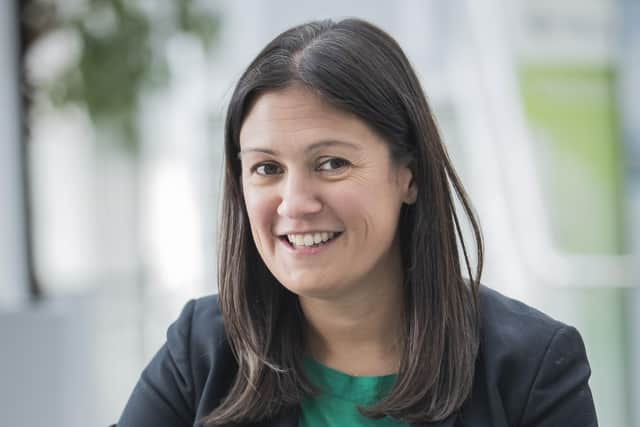Lisa Nandy MP: we need a digital world that is accessible to all
and live on Freeview channel 276
Less than half of those aged over 75 use the internet regularly, and of the 4 million people who have never used the internet in the UK, 3.7 million are over 55.
We live in an increasingly digital world where technology has become essential to the way we socialise, work, shop, learn, bank and gain access to vital services.
Advertisement
Hide AdAdvertisement
Hide AdFor most people this has made life easier. But for the minority who lack the digital skills, confidence or means to gain access to those services, it can make the world feel more inaccessible. Unfortunately, the Government doesn’t have a current strategy for digital inclusion. Its last strategy was published a decade ago and in less than half of that time we have been through countless technological developments that have reshaped our relationship with the internet.


The range of challenges demands a range of solutions. For example, having community banking hubs where high street banking is no longer available and supporting our public libraries that provide free access to computers and the internet.
However, community services such as libraries cannot function without the funding and assistance needed to meet rising demands.
We also need to provide people with opportunities to develop their IT skills should they want to.
Advertisement
Hide AdAdvertisement
Hide AdThe Government say they offer free Essential Digital Skills Qualification courses to those with low digital skills. But many people may not be interested in gaining formal qualifications and just want to be able to undertake basic functions and access services in a community setting.
Wigan Council has a range of schemes to help all residents benefit from the opportunities that digital technologies provide.
One such scheme is TechMates, a mentor service run by volunteers and council staff.
TechMates provide one-to-one digital support within the community, over the phone or via video call. The service helps people use digital technologies such as smartphones, tablets and laptops so that people can build their digital confidence.
Advertisement
Hide AdAdvertisement
Hide AdThere are also regular “TechMate Tea Parties” - free drop-in sessions for anyone looking for support with basic digital skills held in local community venues like libraries and churches.
Residents in need are also able to loan digital devices through the council’s Tablet Lending Library and via the council’s participation in the National Databank programme and those who are digitally excluded can receive free data packages to help get online. Nationally, we also need cast-iron, enforceable commitments that all services, whether public or private, can be accessed in person where there is the opportunity to do so.
There will always be people who, for whatever reason, are unable to access services online and there will always be situations where individual circumstances need to be explained in person. Advances in digital technology have opened a new world of possibilities for many people. But we must take action to ensure that everybody can enjoy the same opportunities as those who have the skills, confidence and income to regularly get online.
Comment Guidelines
National World encourages reader discussion on our stories. User feedback, insights and back-and-forth exchanges add a rich layer of context to reporting. Please review our Community Guidelines before commenting.